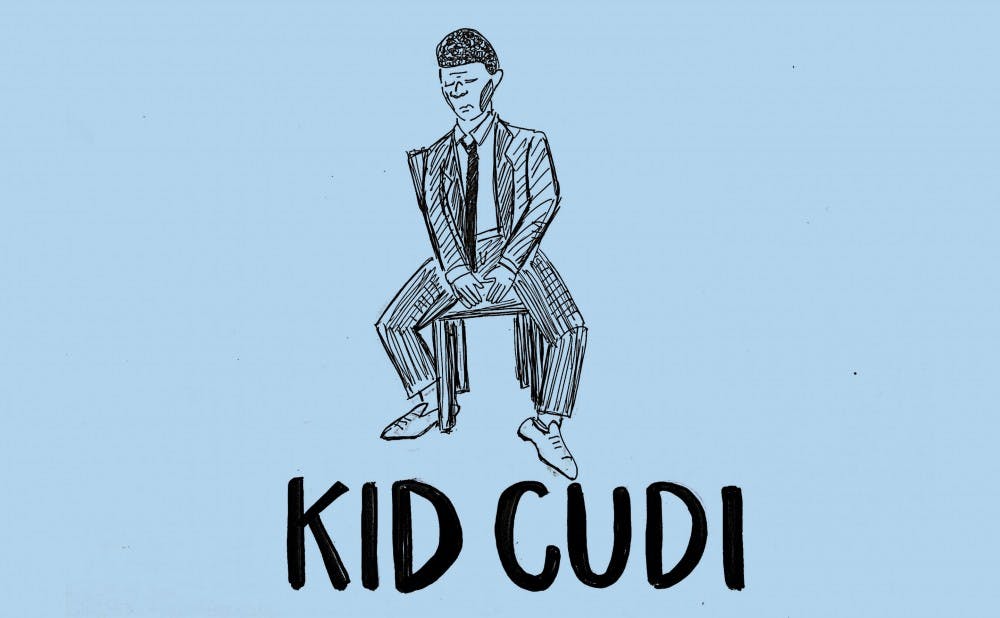The simple thought of my middle-school self is enough to pull a grimace across my face and send a shudder down my spine. I see snippets of a round-bodied 12-year-old wearing Bermuda shorts and a too-tight t-shirt, her long red hair parted directly down the middle of her scalp (a look, she’ll later learn, only Kim Kardashian can pull off), with an enthusiastic smile that boldly displays buck teeth and crinkled eyes. My butterball physique made me hopelessly insecure, and I was consistently the heaviest person in any given space, a seemingly irrelevant detail that I obsessively catalogued. I never considered myself pretty, and I assumed that no else did, either.
In the simplest words possible, feeling ugly sucks. It can be an all-consuming hellfire whose flames lick and lap at you without remorse, a constant reminder of your lack of worth if you’re not conventionally attractive, or it can be a thudding pain that you carry with you everywhere you go, dulled by years of internal verbal battery but burdensome nonetheless. It weathers your soul in unimaginable ways. Regardless of how many times my mom soothed me with words of affirmation, seeing a photo of myself, my stomach protruding and my chin doubled, would send me into a tailspin.
Couple that with middle school — a horrifying landscape of newly-pubescent tweens who desperately want to be admired and accepted and seem cool — and, well, the result isn’t great. I never felt like an outcast amongst my peers, but I didn’t feel like their equal, either. Kids, especially middle-schoolers, are ruthless. (Fat jokes that weren’t even mildly creative? Hilarious.) So I fought hard for my modest place on the social ladder, and that usually meant overcompensating. My excellence came in any form that wasn’t predicated on outward appearance: academically gifted classes, childish (but crowd-pleasing) antics, vulgar jokes shouted across a cafeteria that would embarrass me if I heard them repeated today.
I don’t know how, exactly, I happened upon Kid Cudi’s music, but I do know why. Before I discovered my admiration for film, back when the only culture I consumed was “Lost” and “Glee,” music was a god-sent reprieve from my middle school woes. Of course, it was all mediocre at best — 2010 was a truly reprehensible year of emo rock and Justin Bieber — but I found myself playing Kid Cudi’s “Man on the Moon II: The Legend of Mr. Rager” to death on my pink, third generation iPod Nano.
It’s sort of amusing that “Man on the Moon II” was the album that I gravitated toward as a 12-year-old. (Imagine me bobbing my head along to lyrics about alcohol and marijuana while I worked on my algebra homework.) But, strangely enough, it makes sense. The chorus to “All Along” is somber but cathartic, sung in Cudi’s signature croon: “All along / I guess I’m meant to be alone / Out there on my own.” Or, on “Mr. Rager”: “Knocked down, round for round / You’re feeling like you’re shot down on the ground / When will the heaven begin?” For a kid like me, who felt suffocated by her desire to be wanted and accepted, Cudi’s fearless declarations of loneliness and hurt were liberating.
Much later, I would become more sensitive to Kid Cudi’s precise pain — his struggles with depression have been hyper-visible in the media, especially after his trip to rehab in 2016 for suicidal urges. I probably wasn’t clinically depressed back in middle school, but as someone who now takes antidepressants, I hear Cudi’s lyrics anew, his introspection far more relatable than before.
As I drove to the mountains of North Carolina last week to begin my summer internship, I threw on “ye,” a mess of nonsensical monologues and disappointment after disappointment. When the album wound down to its penultimate track, though, I felt inexplicable tears well up in my eyes. It had been years since I’d last listened to Kid Cudi’s sophomore album, the one that encircles all of my middle school memories, but when his voice soared over the chorus, sad and heavy, I remembered why I’d clung to his music for so long. “I’ve been trying to make you love me / But everything I try just takes you further from me.” My recent breakup hit me in the chest like a ton of bricks, and by the time the outro arrived — “I put my hand on a stove to see if I still bleed / And nothing hurts anymore, I feel kinda free” — I was crying.
I’m well-aware that Kid Cudi is a laughing stock to music nerds everywhere, and I probably can’t provide much in terms of persuasive music criticism. (Film is my preferred medium for a reason.) Pitchfork, the pinnacle of taste that it is, gave “Man on the Moon II” a measly 6.7 out of 10 and remarked that “the trademark sadface stuff” is at least “more fully realized.” Yeah, yeah. He’s no Kanye West. But his melancholy never felt self-indulgent or like a ploy to sell albums. It made (and still makes) me feel a little less alone. And for my gloomy middle-school self, that was everything.
Get The Chronicle straight to your inbox
Signup for our weekly newsletter. Cancel at any time.

